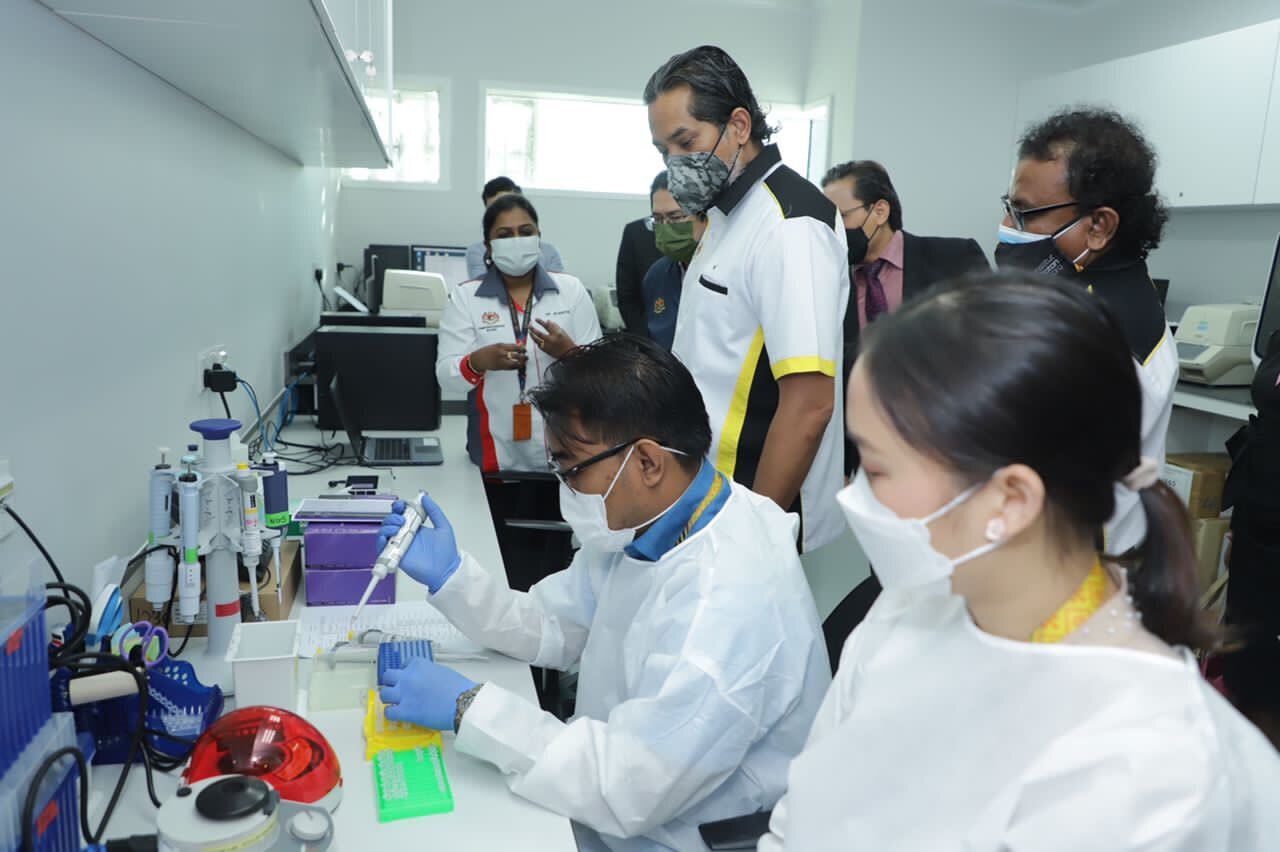KUALA LUMPUR, Nov 29 — The government will not yet consider lockdowns pending further data on the new Omicron Covid-19 variant, Khairy Jamaluddin said today.
The health minister noted, however, that it is likely that the variant of concern is “quite prevalent” globally, after reports of confirmed cases in more than a dozen countries across Africa, Europe, and Asia.
Australia and Hong Kong have reported three and two Omicron infections respectively. The heavily mutated Omicron has also been detected in North America, with two confirmed cases in Canada.
“As with any pathogen of this sort, it’s likely it has spread to more countries. In a few days, we’ll know the full extent of the Omicron spread,” Khairy told reporters at a visit to the National Institutes of Health (NIH) in Setia Alam today.
When a reporter asked if the government would consider reinstating targeted Movement Control Orders, or PKP, Khairy said: “It’s too early to even talk about PKP. The rakyat will get angry instead, hearing the letters PKP.”
The health minister said Malaysian researchers are looking at Omicron — which has caused concern in the UK about likely vaccine evasion due to the large number of mutations on the spike protein of the coronavirus — and that the government is seeking information from the World Health Organization (WHO) and other countries.
“Even when we control our borders against a few countries, we want to make sure our response is proportionate to the risk. We don’t know yet the full extent of the risk.”
Malaysia has joined several countries in suspending travel to and from the southern African countries of South Africa, Botswana, Eswatini, Lesotho, Mozambique, Namibia, and Zimbabwe. Malaysian citizens and permanent residents returning from those countries, or with a 14-day travel history to those countries, will also need to undergo a 14-day compulsory quarantine at a designated quarantine station.
“We’ll look at not just the Langkawi travel bubble, but the necessity of home or hotel quarantine, especially for travellers returning from countries categorised as high risk. So we’ll discuss and make an announcement soon,” Khairy added.
He said the government would also seek confirmation from Covid-19 vaccine developers on whether their vaccines are effective against the new Omicron variant.
“We received early reports from South Africa, where the vaccine coverage is low, Omicron caused moderate symptoms. So that’s some good news, but we don’t know, we have to wait and see.”
Dr Angelique Coetzee, the first South African doctor to reportedly alert authorities about Omicron, told The Telegraph that symptoms of the new variant were unusual but mild. Twenty-four of her patients who tested positive for Covid-19 with symptoms of Omicron were mostly healthy men who reported “feeling so tired”.
The Telegraph reported, however, that Dr Coetzee had also expressed concern about a potentially more severe impact of the new variant on older people with underlying conditions like diabetes or heart disease.
“What we have to worry about now is that when older, unvaccinated people are infected with the new variant, and if they are not vaccinated, we are going to see many people with a severe [form of the] disease,” she was quoted saying.
CNBC reported Pfizer and BioNTech as saying that they can adapt their vaccine, an mRNA shot, to Omicron within six weeks, if necessary, and start shipping batches of an updated vaccine within 100 days.
AstraZeneca is also investigating the new variant, saying its Covid-19 vaccine developed with Oxford University enables a quick response to new mutations.
Khairy said Malaysia would increase genomic surveillance, especially at international points of entry, to quickly detect Omicron that has yet to be reported here.
The consortium of institutions conducting genomic sequencing of Covid-19 — the ministries of health; science, technology and innovation; and higher education — have increased their genomic sequencing capacity to 1,500 samples a month.
“With variants of concern, I will ask the Treasury to increase allocations so that we can boost capacity for genomic surveillance.”
According to the global GISAID database, Malaysia has shared 5,662 genome sequences of Covid-19 to date, or 0.2 per cent of reported coronavirus cases.
Thailand has shared 7,569 sequences with GISAID, or 0.4 per cent of its reported Covid-19 cases, while Singapore has shared 10,012 sequences, or 3.9 per cent of its reported coronavirus infections.
The Ministry of Health (MOH) said in a separate statement that the Institute for Medical Research (IMR) has run more than 1,108 genome sequences of SARS-CoV-2.
IMR is currently developing two Covid-19 vaccines — an inactivated and an mRNA vaccine.
“At this time, both of IMR’s Covid-19 vaccines are at the proof of concept stage before animal preclinical studies. The inactivated vaccine will enter the preclinical stage in January 2022,” said MOH.








